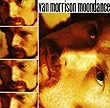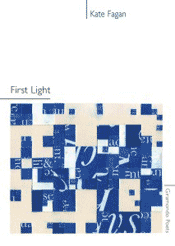 The Belfast-born George Ivan Morrison grew up loving jazz and blues recordings; and as a boy Van Morrison learned how to play guitar, saxophone and harmonica, and he quit school to play music, even traveling in Europe, before returning to Belfast, where he started a music club. His band Them achieved some popularity in the mid-1960s, but he was soon performing alone, launching his solo career with “Brown Eyed Girl” in 1967. Morrison created the experimental album Astral Weeks in 1968, and then Moondance in 1970.
The Belfast-born George Ivan Morrison grew up loving jazz and blues recordings; and as a boy Van Morrison learned how to play guitar, saxophone and harmonica, and he quit school to play music, even traveling in Europe, before returning to Belfast, where he started a music club. His band Them achieved some popularity in the mid-1960s, but he was soon performing alone, launching his solo career with “Brown Eyed Girl” in 1967. Morrison created the experimental album Astral Weeks in 1968, and then Moondance in 1970.
Author:
Masculine Instrumentality; or, Actions Speak: Accelerando by the Vijay Iyer Trio
 Iyer emphasizes music as action; and that fits in with the sense of force the listener hears in the trio’s work. The album cover has a piece of art—it is called “Mother as a Mountain,” a 1985 wood and gesso piece by Anish Kapoor—and it looks like a monumental presentation of a woman’s most private part, but a feminine spirit does not seem to guide the music. Rather, this is very masculine work.
Iyer emphasizes music as action; and that fits in with the sense of force the listener hears in the trio’s work. The album cover has a piece of art—it is called “Mother as a Mountain,” a 1985 wood and gesso piece by Anish Kapoor—and it looks like a monumental presentation of a woman’s most private part, but a feminine spirit does not seem to guide the music. Rather, this is very masculine work.
A review of The Bellwether Revivals by Benjamin Wood
 The Bellwether Revivals has been compared to Brideshead Revisited, because of the brother-sister relationship and the social class element. The ending, however, is reminiscent of that of Sons and Lovers, that great coming-of-age working class novel by D.H.Lawrence, following in Thomas Hardy’s tradition.
The Bellwether Revivals has been compared to Brideshead Revisited, because of the brother-sister relationship and the social class element. The ending, however, is reminiscent of that of Sons and Lovers, that great coming-of-age working class novel by D.H.Lawrence, following in Thomas Hardy’s tradition.
A review of The Hum of Concrete by Anna Solding
 There is an intense intimacy in Solding’s writing style. The words come as a confession: a kind of whispered tale that draws the reader in and invites collusion. The characters progress naturally through time, beginning with key moments of youth and awakening perception, and moving through coupling, and later parenthood.
There is an intense intimacy in Solding’s writing style. The words come as a confession: a kind of whispered tale that draws the reader in and invites collusion. The characters progress naturally through time, beginning with key moments of youth and awakening perception, and moving through coupling, and later parenthood.
A review of The Bird Saviors by William J. Cobb
 It’s nothing like the aching devastation witnessed in Cormac McCarthy’s The Road—to some extent it’s still life as usual in dust-choked Pueblo—but The Bird Saviors might well depict the early days of Cormac’s bleak and terminal catastrophe.
It’s nothing like the aching devastation witnessed in Cormac McCarthy’s The Road—to some extent it’s still life as usual in dust-choked Pueblo—but The Bird Saviors might well depict the early days of Cormac’s bleak and terminal catastrophe.
A review of What It Takes to Become a Chess Master by Andrew Soltis
 To illustrate the range of the book, one chapter looks very specifically at sacrifices and different kinds of compensation, another at how to aim for decision-friendly positions, where there are clear, straightforward plans and the moves are relatively easy to come by.
To illustrate the range of the book, one chapter looks very specifically at sacrifices and different kinds of compensation, another at how to aim for decision-friendly positions, where there are clear, straightforward plans and the moves are relatively easy to come by.
A review of First Light by Kate Fagan
 The grammatical syntax is also inflected, though not enough to lose the coherency. Instead, the conjunction of familiarity and distortion provides a cognitive dissonance that, mingled with the lovely imagery, is simultaneously pleasing and intellectually tricky.
The grammatical syntax is also inflected, though not enough to lose the coherency. Instead, the conjunction of familiarity and distortion provides a cognitive dissonance that, mingled with the lovely imagery, is simultaneously pleasing and intellectually tricky.
A review of Somebody to Love by Parker Longwood
 The writer took this story and gave it body – breathed life into it. The questions weren’t left unanswered and I personally was proud of Claire for her bravery and belief that to find her roots – her story was important. Longwood shows that clearly. She tells Claire’s story beautifully.
The writer took this story and gave it body – breathed life into it. The questions weren’t left unanswered and I personally was proud of Claire for her bravery and belief that to find her roots – her story was important. Longwood shows that clearly. She tells Claire’s story beautifully.
Death Ends A Holiday: Julia Murat’s film Found Memories
 Are they happy or unhappy? Are they afraid or resigned? Are any of them ready to die? The simplicity of the lives of the people in the village gives them a dignified, mysterious quality verging on myth: can they stay alive forever, simply because they choose to? The film achieves its power honestly, plainly, slowly, but power—and finally charm—it does have.
Are they happy or unhappy? Are they afraid or resigned? Are any of them ready to die? The simplicity of the lives of the people in the village gives them a dignified, mysterious quality verging on myth: can they stay alive forever, simply because they choose to? The film achieves its power honestly, plainly, slowly, but power—and finally charm—it does have.
Labor Class Conflict and Interracial Friendship: Edge of the City, starring Sidney Poitier and John Cassavetes, with Ruby Dee and Jack Warden
 The city in the film is large, but the area that we see most is small, that of men who work with their bodies—and yet the tensions among them are those known to society at different levels, in many countries. What is the ultimate standard of value? What is the ideal for maturity; and what is the basis of loyalty; and what are the requirements of justice?
The city in the film is large, but the area that we see most is small, that of men who work with their bodies—and yet the tensions among them are those known to society at different levels, in many countries. What is the ultimate standard of value? What is the ideal for maturity; and what is the basis of loyalty; and what are the requirements of justice?